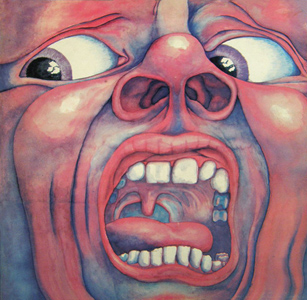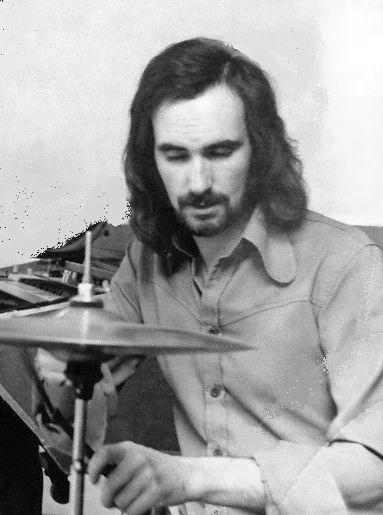sábado, janeiro 31, 2026
Saudades de John Wetton...
Postado por Pedro Luna às 09:00 0 comentários
Marcadores: Asia, hard rock, John Wetton, King Crimson, música, Only Time Will Tell, Rock Progressivo, Roxy Music
John Wetton morreu há nove anos...
John Wetton (Willington, Derby, 12 de junho de 1949 - Bournemouth, 31 de janeiro de 2017) foi um vocalista, baixista e guitarrista britânico.
Morreu em 31 de janeiro de 2017, depois de uma longa batalha contra um cancro do cólon.
Postado por Fernando Martins às 00:09 0 comentários
Marcadores: Asia, hard rock, Heat Of The Moment, John Wetton, King Crimson, música, Rock Progressivo, Roxy Music
sábado, dezembro 27, 2025
Peter Sinfield nasceu há oitenta e dois anos...
Peter John Sinfield (Fulham, London, 27 December 1943 - 14 November 2024) was an English poet and songwriter. He is best known as the co-founder and former lyricist of King Crimson, whose debut album In the Court of the Crimson King is considered one of the first and most influential progressive rock albums ever released.
Sinfield's lyrics are known for their surreal imagery, often involving common fantasy concepts, nature, or the sea. They often also deal with emotional concepts and, sometimes, storyline concepts. Later in his career, he adapted his songwriting to better suit pop music, and wrote a number of successful songs for artists such as Celine Dion, Cher, Cliff Richard, Leo Sayer, Five Star, and Bucks Fizz.
Paul Stump, in his 1997 History of Progressive Rock, called Sinfield "the premier littérateur of Progressive". In 2005, Sinfield was referred to as a "prog rock hero" in Q magazine for his lyrical work and influence in the music industry.
Postado por Fernando Martins às 08:20 0 comentários
Marcadores: Greg Lake, King Crimson, Peter Sinfield, poesia, Rock Progressivo, Roxy Music, Seagoat
domingo, dezembro 07, 2025
Greg Lake, dos ELP, morreu há nove anos...
Postado por Fernando Martins às 09:00 0 comentários
Marcadores: art rock, ELP, Emerson Lake and Palmer, Greg Lake, jazz rock, King Crimson, música, Rock, rock experimental, Rock Progressivo, Still... You Turn Me On
Hoje é dia de ouvir ELP...
Postado por Pedro Luna às 00:09 0 comentários
Marcadores: art rock, ELP, Emerson Lake and Palmer, Greg Lake, jazz rock, King Crimson, Lucky Man, música, Rock, rock experimental, Rock Progressivo
quarta-feira, novembro 19, 2025
Andrew McCulloch celebra hoje oitenta anos...!
(imagem daqui)
Andrew McCulloch (born 19 November 1945, Bournemouth) is an English drummer who worked with Fields, Greenslade, Manfred Mann Chapter Three, Anthony Phillips, Peter Banks, the Crazy World of Arthur Brown and King Crimson in the 1970s before becoming a yachtmaster.
in Wikipédia
Postado por Fernando Martins às 00:08 0 comentários
Marcadores: Andrew McCulloch, bateria, King Crimson, Last Skirmish, música, Prince Rupert's Lament
sexta-feira, novembro 14, 2025
Peter Sinfield morreu há um ano...
Peter John Sinfield (Fulham, London, 27 December 1943 - 14 November 2024) was an English poet and songwriter. He is best known as the co-founder and former lyricist of King Crimson, whose debut album In the Court of the Crimson King is considered one of the first and most influential progressive rock albums ever released.
Sinfield's lyrics are known for their surreal imagery, often involving common fantasy concepts, nature, or the sea. They often also deal with emotional concepts and, sometimes, storyline concepts. Later in his career, he adapted his songwriting to better suit pop music, and wrote a number of successful songs for artists such as Celine Dion, Cher, Cliff Richard, Leo Sayer, Five Star, and Bucks Fizz.
Paul Stump, in his 1997 History of Progressive Rock, called Sinfield "the premier littérateur of Progressive". In 2005, Sinfield was referred to as a "prog rock hero" in Q magazine for his lyrical work and influence in the music industry.
Postado por Fernando Martins às 00:01 0 comentários
Marcadores: Epitaph, Greg Lake, King Crimson, Peter Sinfield, poesia, Rock Progressivo, Roxy Music
segunda-feira, novembro 10, 2025
Greg Lake nasceu há 78 anos...
Postado por Fernando Martins às 07:08 0 comentários
Marcadores: art rock, ELP, Emerson Lake and Palmer, Fanfare For the Common Man, Greg Lake, jazz rock, King Crimson, música, Rock, rock experimental, Rock Progressivo
sexta-feira, outubro 10, 2025
Os King Crimson lançaram o álbum de estreia há 56 anos

In the Court of the Crimson King (subtitled An Observation by King Crimson) is the debut studio album by English progressive rock band King Crimson, released on 10 October 1969, by Island Records. The album is considered one of the earliest and most influential of the progressive rock genre, with the band combining musical influences that rock music was founded upon with elements of jazz, classical, and symphonic music.
Widely regarded as one of the greatest progressive rock albums of all time, In the Court of the Crimson King reached number five on the UK Albums Chart and number 28 on the US Billboard 200, where it was certified Gold by the Recording Industry Association of America (RIAA). In 2015, the album was ranked number 2 on Rolling Stone's list of the "50 Greatest Prog Rock Albums of All Time", behind 1973's The Dark Side of the Moon by Pink Floyd.
in Wikipédia
Epitaph - King Crimson
The wall on which the prophets wrote
Is cracking at the seams.
Upon the instruments of death
The sunlight brightly gleams.
When every man is torn apart
With nightmares and with dreams,
Will no one lay the laurel wreath
When silence drowns the screams.
Confusion will be my epitaph.
As I crawl a cracked and broken path
If we make it we can all sit back
and laugh.
But I fear tomorrow I'll be crying,
Yes I fear tomorrow I'll be crying.
Between the iron gates of fate,
The seeds of time were sown,
And watered by the deeds of those
Who know and who are known;
Knowledge is a deadly friend
If no one sets the rules.
The fate of all mankind I see
Is in the hands of fools.
Confusion will be my epitaph.
As I crawl a cracked and broken path
If we make it we can all sit back
and laugh.
But I fear tomorrow I'll be crying,
Yes I fear tomorrow I'll be crying.
Postado por Fernando Martins às 00:56 0 comentários
Marcadores: Epitaph, King Crimson, March For No Reason, Rock Progressivo, Tomorrow And Tomorrow
domingo, setembro 21, 2025
Boz Burrell morreu há dezanove anos...
Postado por Fernando Martins às 00:19 0 comentários
Marcadores: Bad Company, blues-rock, Boz Burrell, Gone Gone Gone, hard rock, jazz fusion, King Crimson, música, Rock 'n' roll, Rock Progressivo
quinta-feira, junho 12, 2025
John Wetton nasceu há 76 anos...
Morreu em 31 de janeiro de 2017, depois de uma longa batalha contra um cancro no cólon.
Postado por Fernando Martins às 07:06 0 comentários
Marcadores: album-oriented rock, Asia, guitarra, hard rock, Heat Of The Moment, John Wetton, King Crimson, música, Rock Progressivo, Roxy Music, UK
sábado, maio 17, 2025
Bill Bruford faz hoje 76 anos
William Scott Bruford (Sevenoaks, 17 May 1949) is an English retired drummer, composer, producer, record label owner and musicologist who first gained prominence as a founding member of the progressive rock band Yes. After his departure from Yes, Bruford spent the rest of the 1970s playing in King Crimson (1972-1974) and touring with Genesis (1976) and U.K. (1978). Eventually he formed his own group (Bruford), which was active from 1978-1980.
In the 1980s, Bruford returned to King Crimson for three years, collaborated with several artists, including Patrick Moraz and David Torn, and formed his own jazz band Earthworks in 1986. He then played with his former Yes bandmates in Anderson Bruford Wakeman Howe, which eventually led to a very brief second stint in Yes. Bruford played in King Crimson for his third (and final) tenure from 1994-1997, after which he continued with a new configuration of Earthworks.
Postado por Fernando Martins às 07:06 0 comentários
Marcadores: bateria, Bill Bruford, Genesis, In The Dead Of Night, jazz, King Crimson, percussão, Reino Unido, Rock Progressivo, UK, Yes
sexta-feira, maio 16, 2025
Robert Fripp comemora hoje 79 anos
Robert Fripp (Wimborne Minster, Dorset, Inglaterra, 16 de maio de 1946) é um guitarrista inglês de rock progressivo, famoso por suas técnicas inovadoras no seu instrumento, como o uso de um aparelho denominado Frippertronic que dá à guitarra a capacidade de gerar sons de sintetizadores. É o líder da banda King Crimson. Trabalhou com músicos como Brian Eno, Andy Summers, Peter Gabriel, David Bowie e David Sylvian. Foi considerado o 62º melhor guitarrista de todos os tempos pela revista norte-americana Rolling Stone.
Postado por Fernando Martins às 07:09 0 comentários
Marcadores: guitarra, King Crimson, Larks' Tongues in Aspic, música, new wave, Reino Unido, Robert Fripp, Rock Progressivo
sexta-feira, janeiro 31, 2025
Saudades de John Wetton...
Postado por Pedro Luna às 08:00 0 comentários
Marcadores: After All, Asia, hard rock, John Wetton, King Crimson, música, Rock Progressivo, Roxy Music
John Wetton faleceu há oito anos...
John Wetton (Willington, Derby, 12 de junho de 1949 - Bournemouth, 31 de janeiro de 2017) foi um vocalista, baixista e guitarrista britânico.
Morreu em 31 de janeiro de 2017, depois de uma longa batalha contra um cancro do cólon.
Postado por Fernando Martins às 00:08 0 comentários
Marcadores: Asia, hard rock, John Wetton, King Crimson, música, Only Time Will Tell, Rock Progressivo, Roxy Music
sexta-feira, dezembro 27, 2024
Peter Sinfield nasceu há 81 anos...
Peter John Sinfield (Fulham, London, 27 December 1943 - 14 November 2024) was an English poet and songwriter. He is best known as the co-founder and former lyricist of King Crimson, whose debut album In the Court of the Crimson King is considered one of the first and most influential progressive rock albums ever released.
Sinfield's lyrics are known for their surreal imagery, often involving common fantasy concepts, nature, or the sea. They often also deal with emotional concepts and, sometimes, storyline concepts. Later in his career, he adapted his songwriting to better suit pop music, and wrote a number of successful songs for artists such as Celine Dion, Cher, Cliff Richard, Leo Sayer, Five Star, and Bucks Fizz.
Paul Stump, in his 1997 History of Progressive Rock, called Sinfield "the premier littérateur of Progressive". In 2005, Sinfield was referred to as a "prog rock hero" in Q magazine for his lyrical work and influence in the music industry.
Postado por Fernando Martins às 08:10 0 comentários
Marcadores: Greg Lake, King Crimson, Lament, Peter Sinfield, poesia, Rock Progressivo, Roxy Music
sábado, dezembro 07, 2024
Take A Pebble...
Postado por Pedro Luna às 08:00 0 comentários
Marcadores: art rock, ELP, Emerson Lake and Palmer, Greg Lake, jazz rock, King Crimson, música, Rock, rock experimental, Rock Progressivo, Take A Pebble
Greg Lake, dos ELP, morreu há oito anos...
Postado por Fernando Martins às 00:08 0 comentários
Marcadores: art rock, ELP, Emerson Lake and Palmer, Greg Lake, jazz rock, King Crimson, Lucky Man, música, Rock, rock experimental, Rock Progressivo
terça-feira, novembro 19, 2024
Andrew McCulloch faz hoje 79 anos
(imagem daqui)
Andrew McCulloch (born 19 November 1945, Bournemouth) is an English drummer who worked with Fields, Greenslade, Manfred Mann Chapter Three, Anthony Phillips, Peter Banks, the Crazy World of Arthur Brown and King Crimson in the 1970s before becoming a yachtmaster.
in Wikipédia
Postado por Fernando Martins às 07:09 0 comentários
Marcadores: Andrew McCulloch, bateria, King Crimson, Last Skirmish, música, Prince Rupert's Lament
domingo, novembro 10, 2024
Greg Lake nasceu há 77 anos...
Postado por Fernando Martins às 07:07 0 comentários
Marcadores: art rock, ELP, Emerson Lake and Palmer, Greg Lake, jazz rock, King Crimson, Lucky Man, música, Rock, rock experimental, Rock Progressivo
.jpg/800px-John_Wetton_playing_bass_live_(cropped).jpg)









